

Discover more from Liberating Motherhood
Results of the Experiences With Divorce Survey
The survey paints a portrait of life that is better, safer, and happier after divorce, of a divorce process that can be scary and abusive, but of overwhelmingly positive long-term outcomes for women.
The results are in! About 4,000 people took my survey—almost all of them women who divorced men.
You can read the survey questions here. While you can still take the survey, I am no longer analyzing the data, so if you take the survey your data will not count! Don’t do it!
About This Survey
This survey is imperfect, offering only a snapshot of a specific group. Some things to keep in mind:
This is not a scientific survey with a representative sample. I don’t have the resources for that. But many, many surveys—including some published in scientific journals—use unrepresentative samples. So I consider this a starting point for research, not the final word. Don’t treat it as the final word.
I’ve tried to deliver the results in several different formats. I’m including a number of images for people who prefer to take in information in this format. These are designed to be shareable (so they make reference to the survey and include a link back to my Substack). Because images can be inaccessible, though, I have also written out the information each image contains. You have my permission to share these images, but only if you credit me and link back either to my Substack, my Instagram, or my Facebook.
There may be minor (one percentage point or less) differences between the data in the images and the data in writing. This is because I began developing these images before I closed access to the survey. The written data is the most up to date.
Finally, this email is really long because there’s a ton of data. So if you’re receiving this message in your email, your email server may truncate it. Just click on the link to view in the web browser when you reach the end.
Paid subscribers can read the survey now. Becoming a paid subscriber also gains you access to my massive backlog of paid content, a support group, and extra content.
Free subscribers will have to wait a month for the data to become available to them.
Demographics
Here’s a rough overview of the people who took my survey:
The average length of time people had been together when they divorced was 14 years.
It had been, on average, 6 years since the person’s divorce. The longer it had been since the person’s divorce, the more likely they were to report feeling positively about the divorce.
The overwhelming majority of women worked outside of the home but almost all made less than their husbands.
Life before marriage
I asked a bit about life before marriage in an effort to understand what red flags might help women avoid bad relationships. Ninety-five percent of women told me there were serious red flags in their relationship long before they got married. Here are some examples:
“He sulked when he didn't get his way, complained about other people, rude to waitstaff, etc., aggressive outbursts out of nowhere about small things, lovebombed me, in tons of debt and hadn't had a regular job in years, no original thoughts of his own (endless font of movie quotes or regurgitating things he heard other people say), false piety.”
“He was sneaky and hid things from me. Mostly female relationships.”
“I wasn’t aware that I could set a standard and stick to it. I saw my (Catholic) marriage as my lot in life, and tried to make the best of it. Now I see that we both were repeating patterns, and he was not open to growth. Again, stonewalling, selfish behaviour. Weaponised incompetence. Isolating me from my friends. Telling me I was better at (dusting/ cleaning/ planning/organising/finances etc etc etc just so I would do it. Also “I can’t see the dirt!” Also telling me when we caught and I cried that I was only crying to manipulate him. This one I now see was a glaring red flag, and projection. People tell you how they think in these moments, and if you pay attention, you can learn what type of person someone is.”
“Yes. I was love bombed. He used emotional abuse when I said or did something he didn’t like. He wouldn’t let me keep my maiden name.”
“I was 22 and he was 37 when we met. I was young and stupid and didn’t know what most red flags were or what to do with them. I missed a lot but also ignored some pretty blatant ones. He proposed after 2 weeks. All his exes were crazy. Said the best thing he could have done was shoot one of his exes. Was strangely close to his mother. Like she would go and talk to him while he was in the shower kind of strange. He let other people degrade me to my face and would laugh about it. Would deny this even happened when confronted. If I disagreed with him he would call his mum then get her to call me and tell me I was wrong. Still ran a smear campaign about exes from over 15 years ago. Weirdly secretive about company structures that owned property. Said his daughters mother destroyed the bond he had with her and that’s why he was a shitty parent.”
“His anger, how he often spoke to me from the very beginning when things weren’t going his way. His inability to bother making and effort for my birthdays and mothers days. The way he and his family interacted.”
Here’s a word cloud highlighting the most recurring themes
57% of women told me they felt pressured to get married. 68% said they felt doubts before getting married. This strongly suggests that cultural pressures to get married encourage women to choose spouses who harm them.
Why and how couples get divorced
Who filed for divorce?
86% of women said they were the one who filed
89% say they now wish they had gotten divorced sooner
What were the main reasons for the divorce?
Women overwhelmingly told tales of harrowing circumstances. Emotional abuse was the norm, and physical and sexual abuse were common. The types of emotional abuse women told me about were not incidental, either. Almost every respondent told a story of ongoing, sustained abuse that lasted for years. Here are the main factors respondents cited leading to their divorces:
Emotional abuse: 85%
Physical abuse: 27%
Household labor inequality: 84%
Bad parenting by their ex: 82%
Abuse of the children: 27%
Sexual abuse: 28%
Financial abuse: 57%
Inability to manage conflict: 82%
Infidelity: 38%
The final straw
When I asked women if there was a specific incident that inspired them to file for divorce, here’s what they told me:
“When I said no to sex and he raged around the room, slamming furniture and screaming at me.”
“Lack of any kind of care for me after childbirth or sickness. Never got up with baby and let me struggle alone through pnd, ptsd and severe sleep deprivation. Swore at me if I asked him to get up with baby. I realized that he cannot truly love me if that is how he behaved during the most vulnerable time of my life.”
“Refusing to help with preparing dinner for our children while I had food poisoning- forcing me to drive with a bucket between my legs to throwing up into while I got takeaways while he stayed home and played video games.”
“My ex-husband couldn't cope with our son's normal kid behaviour, such as not being still at the dinner table. He would overreact and shout then I would have to deal with our son's subsequent meltdown.”
“There were many "final straws". I kept going back. Smashed furniture, insults, gaslighting, being jealous of the attention I paid our young child, blocking my Internet connection while I worked from home. The very final straw was our daughter tripping over his legs and crying. He told her she deserved it. Seeing how he treated me through our daughter's eyes and knowing this was her "normal" was what made me leave. I initiated the separation, my parents came to get me and our daughter, we lived with them for 5 weeks while we arranged housing. About a year later, my spouse was the one to file for divorce but the initiative to break up was mine.”
“My husband was extremely violent and I finally left him when I realised it would only end when he killed me.”
“Inequity. Lack of empathy and thoughtfulness on his part. When we were married no kids it wasn’t such a problem, I had other fulfilling things in my life. But then two close, difficult pregnancies later, I didn’t listen to his promises to change, I didn’t buy in to his attempt to guilt me away from “breaking” our family. It was raising two girls, doing it all, and realising I could do it all without his abuse, and that I would be modelling what my girls should tolerate in a relationship, that gave me the courage to leave two under two.”
“Constant silent treatment anytime there was an argument. Jealously (telling me I liked like a slut if my shirt was low or being upset that I smiled at a waiter). Threatening to kill me. Telling me I couldn't divorce because I'd always be his unless I cheated or died. I realized I couldn't bring children into this, as I wouldn't them to be raised in a household with him. (Sidenote: he worked at a grocery store, but refused to go shopping unless I made the list and went with him. I was working a lot and not getting home until late, and I lost a lot of weight, down to 102 pounds at 5'7").”
“I was doing 90% of the mental load, 90% of housework, 90% of the childcare and worked full time too. I was re-painting the bathroom one night while he was out drinking until midnight and I just thought, no more.”
Women’s views on their marriage prior to the divorce, and experiences with couples counseling
Women generally told me stories of marriages they spent years, and sometimes decades, trying to save. About 65% attended couples counseling prior to divorcing. Most found that counseling was unhelpful, and many reported counselors who were actively harmful, who ignored abuse, or who blamed women for their partner’s behavior. Here are some representative quotes:
“The female councellor told me that if I didn't give my husband regular sex, he would look for it elsewhere because men want respect but women want love. Sexist twaddle from a professional councellor, validated him and ignored my needs. Did not take into account ptsd from a traumatic birth I suffered and brushed it off as birth can be traumatic but lots of women go on to have a second child so you will forget it with time. No, I will not forget a c section without adequate anesthesia, and almost bleeding to death on the operating table.”
“It was awful, because I was being abused I just went along with what my ex said and it was a pile on. I couldn’t understand why the male counseller couldn’t see what was going on and instead focused on my ex getting more sex”
“Counselor 100% understood ex was a man child, not a partner. But no amount of counseling was going to change who he wanted to be.”
“Mostly negative. We tried a few different therapists. One finally called him out on abuse. He felt it was women just ganging up on him and said he wanted a male therapist. He certainly learned to weaponize the language of therapy.”
“It helped me realise he didn't understand me, or have any intention of considering my needs or the children. We would be far better off apart.”
“He definitely weaponised therapy. He made up all sorts of ridiculous stories like I pulled a gun on him etc. He also made me go to the doctor saying I had post partum depression when the problem was actually him.”
“The first attempt was one session with a male therapist. He blamed our marriage issues on my depression (in reality, my depression was caused by my marriage) and said that I should uphold my "wifely duty". I was horrified, my ex felt vindicated. We never returned. Our second attempt was a couple years later, after ex's first infidelity (that I was aware of, in reality he had been unfaithful for years). This was positive for me as this (female) therapist gave us tools for both the marriage and as individuals. Ex did not like this therapist, claimed she was biased (she called him on his bullshit).”
“My ex would get angry during therapy and tell me to stop bringing up the past. Our therapist actually agreed with him and said I needed to let go of my resentment for him and just focus on the future without ever working through the past. It was a total failure of an experience. Therapist blamed me and said I'm toxic too. But she read my intake paperwork and saw that he'd raped me and all the abuse I'd outlined, and still thought I was the problem. She was not informed about abuse at all.”
“We were kicked out of therapy because he called the therapist a bitch when she said something he didn't want to hear.”
“It only happened twice, after years of asking, but immediately after the first session he broke every agreement we’d made to not talk about our relationship outside of therapy. He refused to return after the second visit”
Many women reported being in and out of couples therapy well before they even got married. It was common for women to say they had never been happy. Overall, here’s how that data breaks down:
Our marriage was always mostly unhappy: 40%
Our marriage became unhappy once we had children: 23%
Our marriage was mostly happy, but something happened that changed that: 11%
Our marriage was mostly happy, but became more unhappy with time: 26%
Announcing the divorce
How partners reacted
52% of women reported that their partners attempted to dissuade them from divorcing—often by engaging in more of the very same abusive behavior that led to the divorce in the first place. Here’s some of what they told me:
“He broke back into the house after I had put a note in his truck (along with his stuff) asking him not to return. I had changed the locks, but he came in through a window and taped a note to the inside of the doors saying that he was not going to give up. He called my dad and brother and ranted at them.”
“He went through the whole cycle of begging, yelling, blaming me. He wouldn’t accept no for answer.”
“He did nothing. I did all the paperwork, all the administrative stuff, the filing, the research, and then he questioned me. At which point I told him to get his own answers, I wasn’t doing all this work to ease him through it, just myself. But he did become abusive and irrational about money. I needed security cameras, days off work to recover from days of written and verbal abuse, etc.”
“Couldn’t believe it, refused to leave the house which I had purchased before meeting him. I had to refuse to cook & wash for him etc but it still took ages for him to go”
“He became very angry and the post-separation abuse was very scary. Once he moved out, he immediately had a girlfriend.”
“He was blindsided and then started threatening me, as did his family.”
“He was shocked. He had started to get really aggressive and abusive. I started to pretend like I was super on board with everything he thought, stopped arguing, pretended I was the problem and not him to get him to calm down. While this played out I started planning on how to leave in a way that would get myself and my children out safely. He was shocked when he came home one day and we were gone. He then absolutely hit the roof. Threatened suicide. Drained my bank accounts. Smeared me to everyone. Our mutual accounts, the lawyer that we met once to do our wills. Literally everyone. Then he acted sorry and wanted me back.”
“Sad, agitated. Wanted to stay together, but let me go. Was fair in the process.”
“When I told him I was done, he thought I had called him home for some daytime loving. That’s how different our paths were- completely disconnected.”
How children reacted
Children’s initial reactions were mixed, and were not a good predictor of the children’s long-term reactions:
22.6% say their children’s reaction was initially mostly positive.
47.51% say their children’s reaction was initially mostly neutral.
30% say their children’s reaction was initially mostly negative.
Over the long-term, 87.37% say the divorce has been completely or mostly positive for their children.
How family and friends reacted
83.15% of women say that their family and friends were supportive of the divorce.
The process of divorce
32.2% of women report that their partners used the family court system to abuse them or otherwise harm them—a statistic consistent with most research on family courts. But most readers resolved their disputes without ultimately going to trial:
71.71% went through mediation.
13.16% used a guardian ad litem or other court-appointed expert
52.85% attended at least one court hearing
13.6% went to trial
3.51% went through an appeal after a trial
19.52% went through a modification of a court order
21.27% sought a temporary protective order
44.86% of respondents say going through a divorce was harder than they expected. 39.72% say it was about as they expected, and 15.42% say it was easier than they expected.
90% say they have never considered getting back together with their ex.
The typical length of the divorce process, from filing to finalization, broke down as follows:
less than 6 months: 18.73%
6 months to 1 year: 27.26%
1 to 2 years: 30.1%
2 to 3 years: 12.54%
Longer than 3 years: 11.37%
Finances and Child Support
Family Income
Child support is heavily dependent on the income of the parties. 76.98% of women and 91.3% of men worked outside the home at the time of the divorce.
Women’s current annual earnings at the time of the survey, in US dollars, break down as follows:
0-25k per year: 13.3%
25k-50k per year: 24.61%
50k-75k per year: 20.84%
75k-100k per year: 17.29%
100k-150k per year: 17.29%
150k-250k per year: 5.54%
250k or more per year: 1.11%
Men’s current annual earnings at the time of the survey, in US dollars, break down as follows:
0-25k per year: 5.57%
25k-50k per year: 15.78%
50k-75k per year: 16.47%
75k-100k per year: 21.11%
100k-150k per year: 18.33%
150k-250k per year: 14.39%
250k or more per year: 8.35%
Child support awards and payments
71.56% of women were awarded child support. Note that all women participants had joint custody or more.
The monthly court-ordered child support award, in US dollars, women were awarded breaks down as follows:
0-100: 22.74%
100-500: 24.93%
500-750: 13.7%
750-1,000: 14.52%
1,000-2,000: 18.36%
2,000-3,000: 3.56%
3,000-4,000: 0.27%
4,000-5,000: 0.82%
5,000-6,000: 1.10%
55.61% of women say their exes pay child support on time and in full each month.
Child Custody and Well-Being
On average, women report that their partners did about 20% of childcare prior to the divorce. This statistic has remained remarkably consistent across every survey I have conducted.
Yet men frequently sought custody arrangements that were inconsistent with their prior parenting:
11.8% of men did not want any custody or visitation at all.
23.03% sought only visitation—every other weekend or a substantially similar schedule.
52.25% of men sought joint custody.
6.37% of men sought primary custody
6.55% of men sought sole custody.
None of the men who sought sole or primary custody got it. And 53% of men who sought joint custody got less than that. In general, men got less custody than they sought, but their custody arrangements gave them more time with their children than they had previously spent.
Child abandonment by the father was a common outcome, regardless of the type of custody the court initially awarded. 30.85% of women respondents say their partners abandoned their children after the divorce.
The custody arrangements courts eventually awarded broke down as follows:
16.81% sole custody to the mother
30% primary custody to the mother, with the father seeing the kids some weekends
10.54% primary custody to the mother, with the father seeing the kids a few days per month
9.97%: 60/40 split, with mother getting 60% time
32.76%: 50/50 joint custody
Just two people reported the man getting more than joint custody.
58.45% of people who sought help from the court to stop abuse of their children said they did not receive adequate help.
9.04% of respondents said their ex had physically or sexually abused their child since the divorce. 24.83% of respondents say their exes abused their children during the marriage.
Women overwhelmingly reported that divorce made parenting easier:
70.63% say they are a better parent now.
27.45% say their parenting is about the same.
1.92% say their parenting is worse now.
I also asked respondents how the divorce had affected their partner’s parenting:
20.71% say it made their partner a better parent.
50.80% say their partner is about the same as before.
28.5% say their ex became a worse parent.
Navigating the Legal System
72.8% of respondents used a lawyer during their divorce. Using a lawyer strongly correlated with better outcomes and more post-divorce satisfaction. Consider the following:
When women used a lawyer, men were half as likely to get joint custody, and the most common outcome was primary custody for the mother with a few days of visitation for the father.
Child support awards more than doubled when a woman hired a lawyer.
The divorce process moved more quickly when women hired lawyers.
Life After Divorce
Women told stories of very difficult divorce processes, and often said that abuse initially escalated. But over time, their lives got steadily and dramatically better:
98.7% say they do not regret their divorce, though 73% regret getting married.
70% say their life is much better after divorce, and 22.46% say it is better. Just 1.72% say it is worse, and 1% say it is much worse.
10% reported experiencing abuse from their partners following the divorce—roughly a third of the rate in marriage. Most people who reported ongoing abuse noted in the comments that the frequency and severity of the abuse had declined, even if the abuse itself still persisted.
High conflict divorces
A high conflict divorce in which the man tries for years to take everything from the woman is the nightmare scenario for most women contemplating divorce. I looked at this subgroup by assessing answers from women who said that their partners had weaponized the family court system against them, and who said that their divorce had gone through multiple legal processes (often a trial and an appeal).
I found that men often got slightly more in these situations, and women spent significant resources fighting their partners in court. Here are some specific data points:
Men in this group were significantly more likely to seek joint custody or more. 18% sought sole custody.
Ultimately, though, women were actually more likely to be awarded more than joint custody in this group. 49% ended up with either sole custody, or primary custody with minimal visitation with the man. 29% had 50/50 custody, and just one person reported that her partner got sole custody.
35.71% of men in this group ultimately abandoned their children.
Physical abuse was much more common in this group, with 47% of women reporting violence before the divorce, and 49% reporting sexual abuse.
This group of men was also more likely to have abused their children, with 46.89% of women reporting such abuse.
There’s a ton of data behind this data. I have the ability to control for certain factors—for example, I can see how income correlates with child support. If you have any specific questions about the data, or want to know more about certain correlations, feel free to ask in the comments!





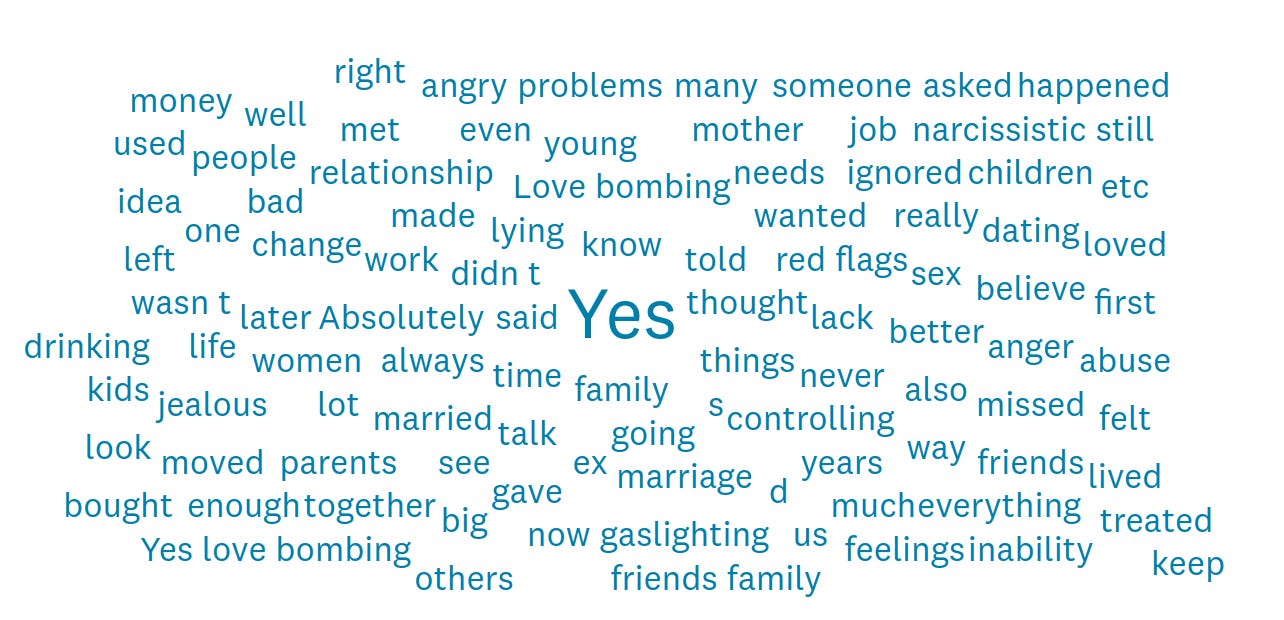
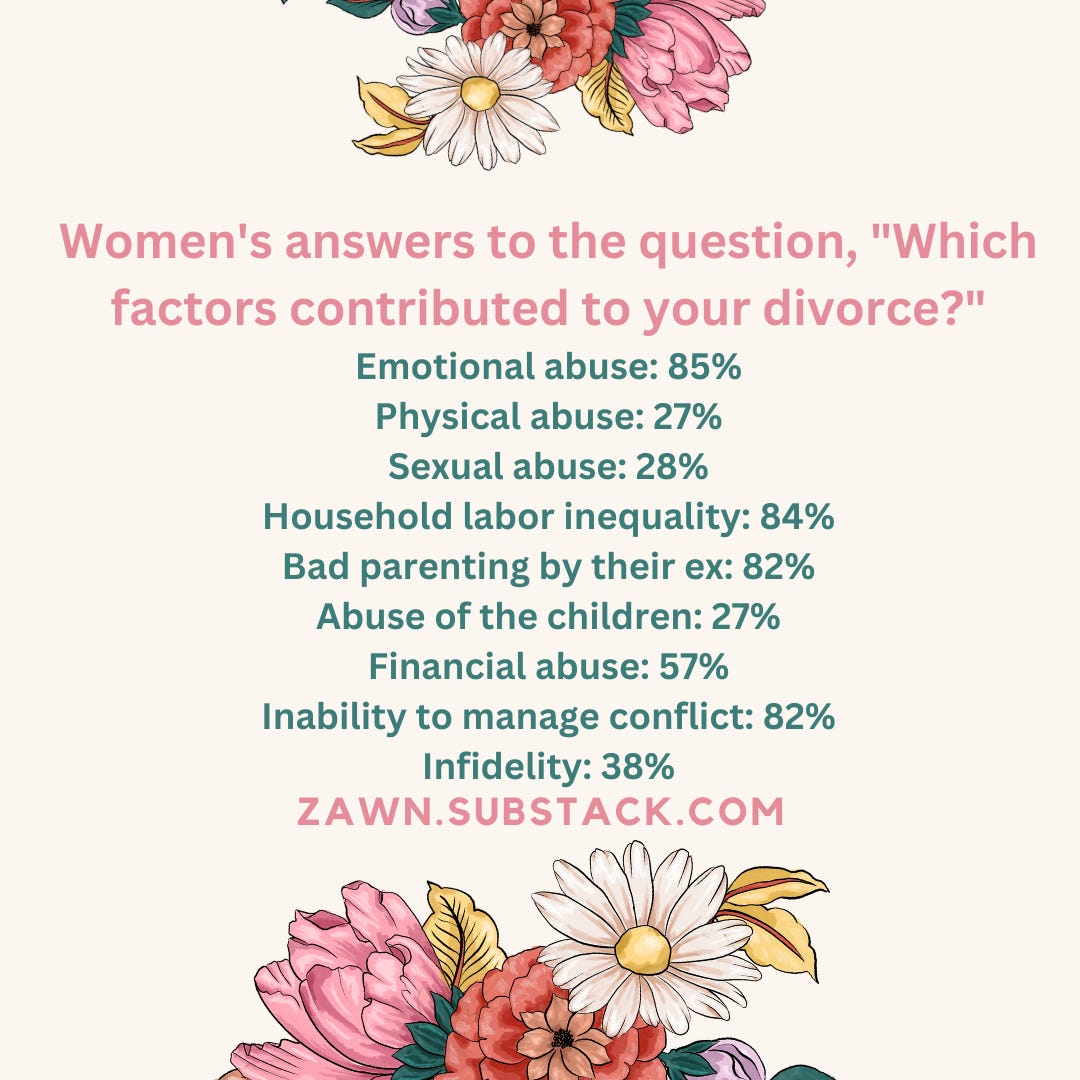
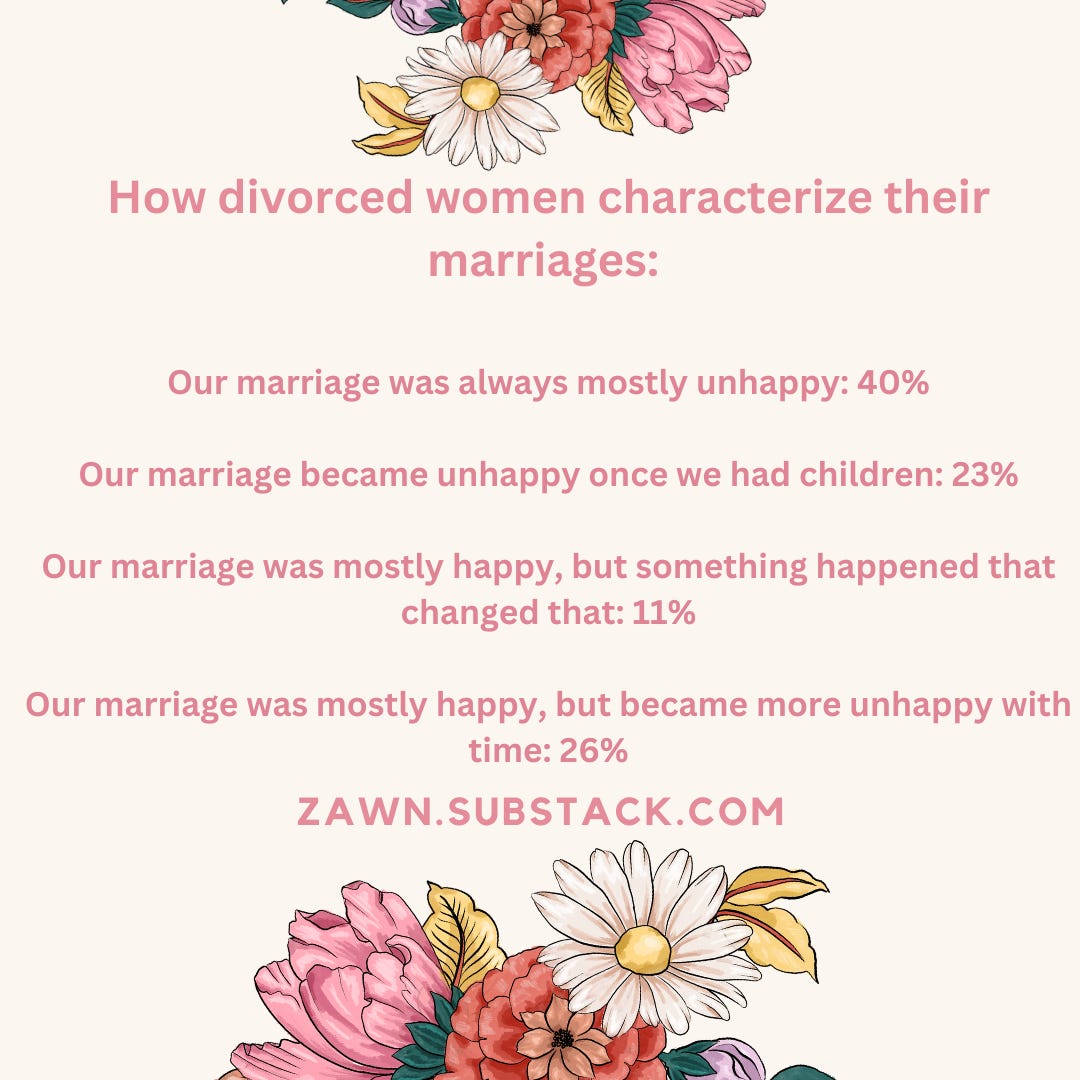
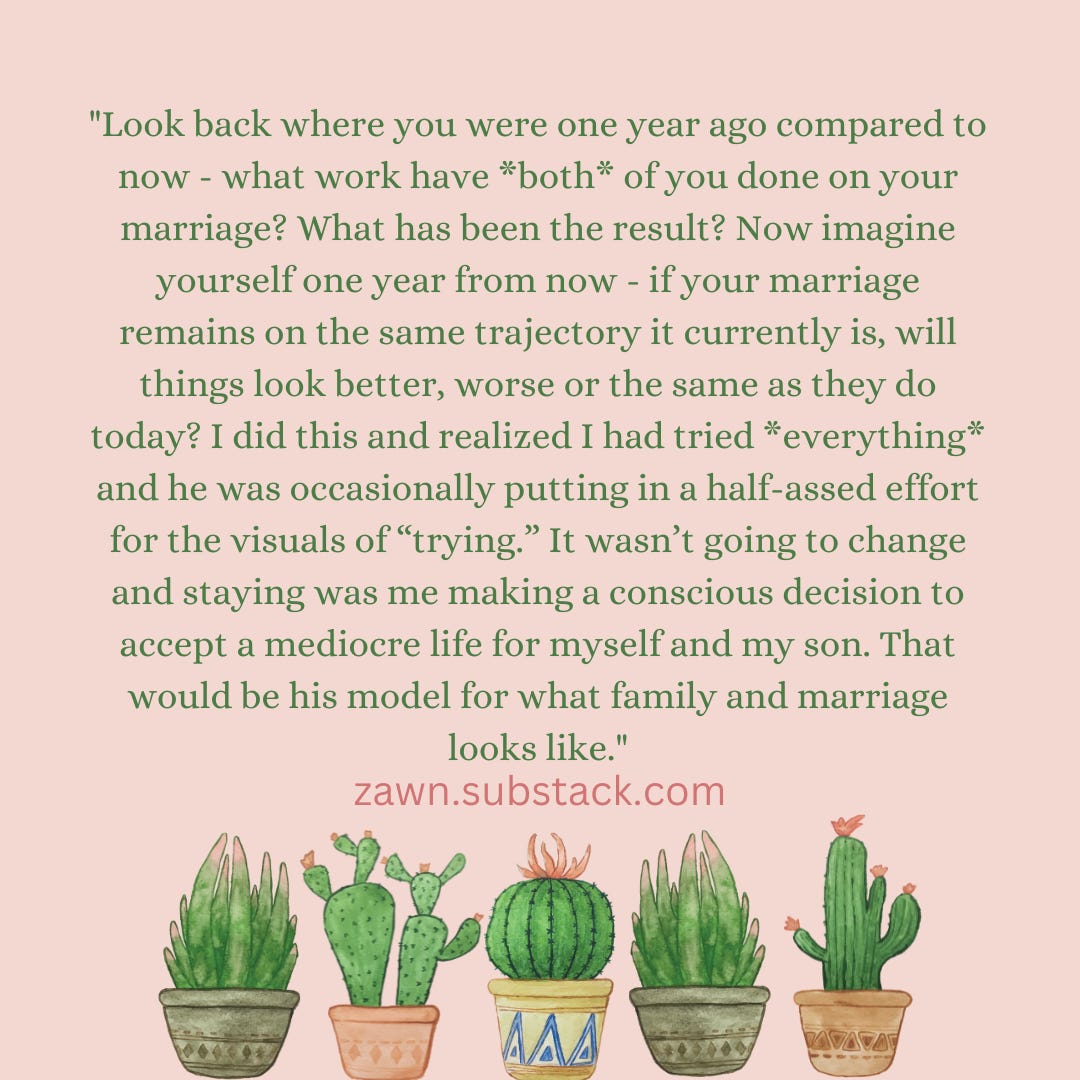
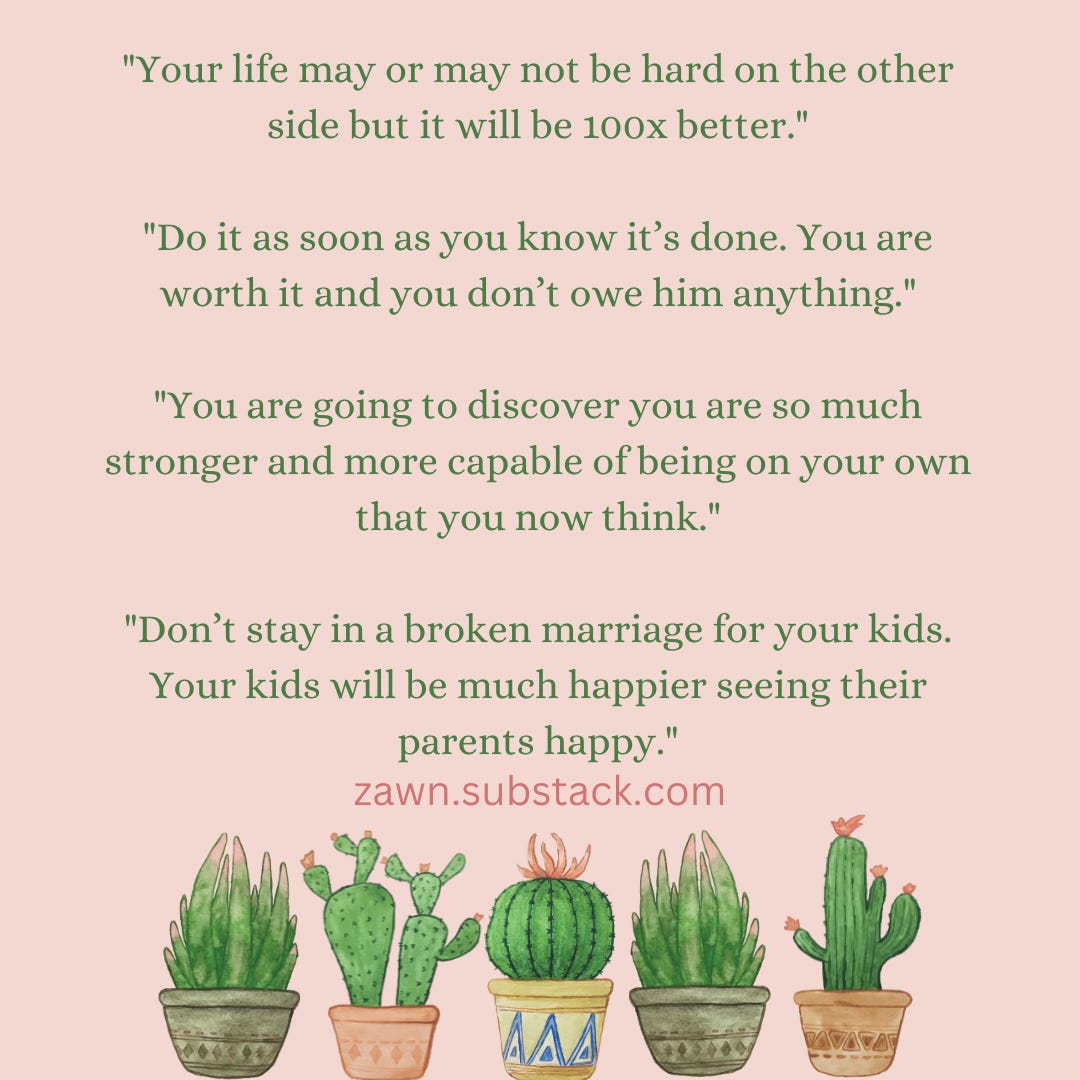
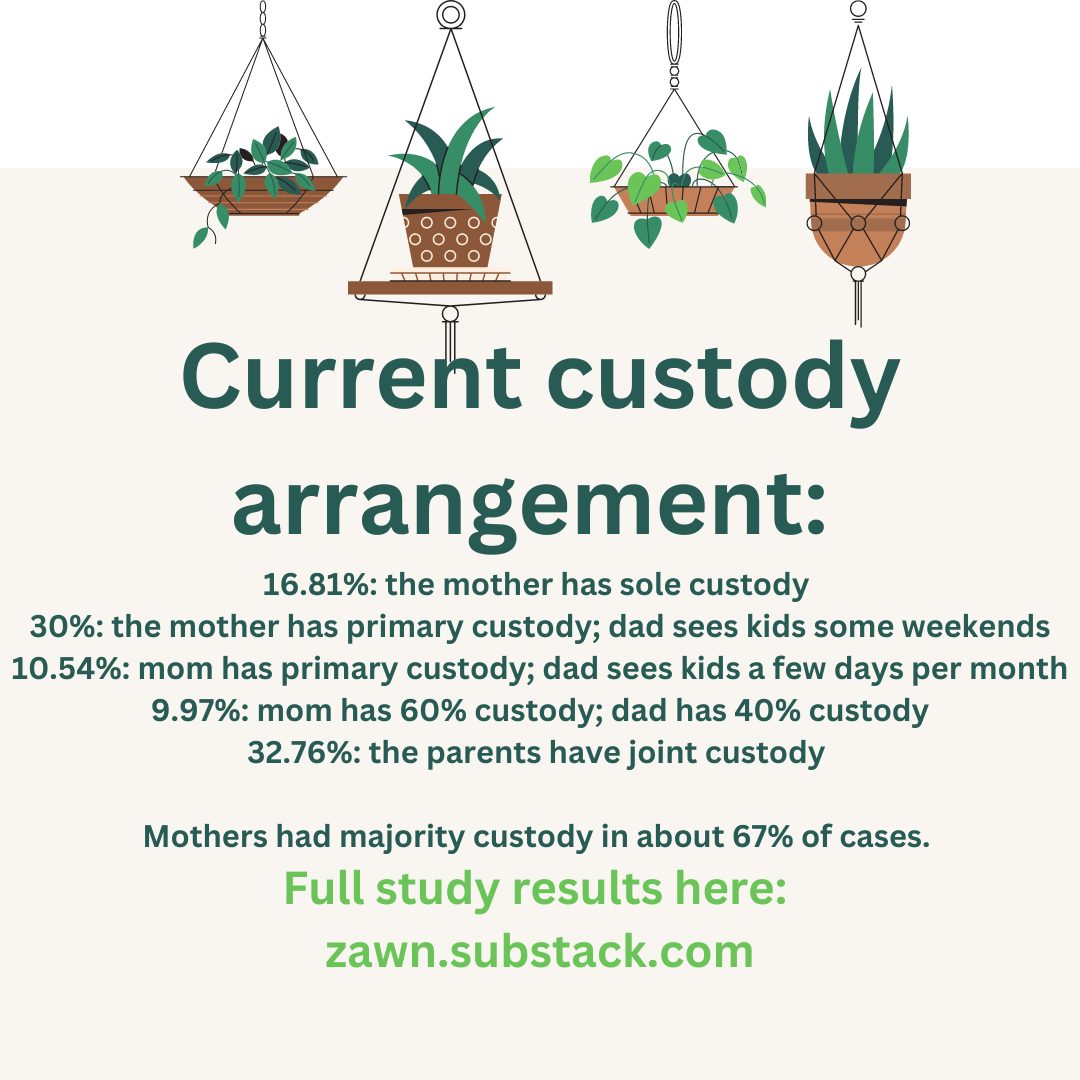










In marriage, we are told that it’s the woman’s role to care for and keep the home and tend to children. That’s her natural role, that’s what makes her happiest, that’s what she’s good at. Woman is 100% mother and mother is 100% the caretaker of children. Father on the other hand is the protector and provider. He doesn’t have any responsibility towards his children (0%) regarding their care and nurturance. He provides by working outside the home, and it’s just a coincidence that this also provides him opportunities to be recognized as a competent and successful individual economically, politically, religiously, academically, intellectually, artistically, technologically, scientifically by society. He doesn’t have to do anything inside his home regarding his children because he works his ass off providing financially for a wife and children he owes *nothing* to emotionally.
From a different post: “They think they should get to have kids without having to be financially responsible for them, all while claiming to be alphas whose financial contributions are so valuable that they shouldn’t be required to do anything at home.”
“ In general, men got less custody than they sought, but their custody arrangements gave them more time with their children than they had previously spent.”
But somehow, magically, in divorce, all that changes. Men and women become equal in the social role of parent, each deserving 50% of the child, like the famous story from the Bible showcasing the wisdom of Solomon. The mother should provide 50% or more of the child’s financial maintenance (why?) and the father must physically have the child (to do what?) 50% of the time. To suggest otherwise is, according to some men, oppressing fathers. But they can’t explain how. If men didn’t evolve to care for children, only to pay for them through their well compensated efforts outside the home, what is the problem with them paying child support and moving on? And if it’s good for children to be cared for by their fathers, how does it then square that men shouldn’t be expected do any housework or childcare *while they are married?*
This is great info! What about the final costs of divorce when using lawyers vs mediation vs any other options? And how much child support was affected by using lawyers vs mediation.